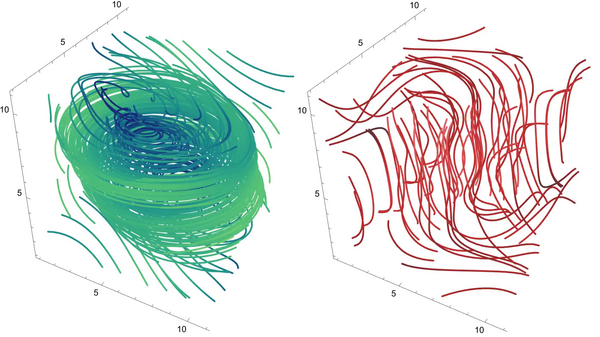The starting point of the project was the Ehrenpreis-Palamodov fundamental principle from the 1950s and 60s, which provides deep insights into linear differential equations. Lange-Hegermann and his co-authors combined the principle with their preliminary work and thus made the leap from pure mathematics into practice. The authors show that considering characteristic frequencies of solutions of systems of differential equations leads to a probability distribution on the solution space of the differential equation. This distribution is a so-called Gaussian process, which is characterised by mathematical benignity and simple transferability to computers.
The applicability of the new approach was demonstrated on various differential equation systems, including heat transport, physical waves and Maxwell's equations for electromagnetism. Especially in the field of fusion reactors, the prediction of electromagnetic fields from a few measurements can be used in development, where the maintenance of the magnetic field remains a central challenge. inIT board member Prof. Markus Lange-Hegermann is enthusiastic about the new method: "This enables more precise modelling of physical systems with less computing time and thus offers a promising perspective for research and development of physical correlations in data."
The authors will present the paper in detail in a lecture at the prestigious International Conference on Machine Learning 2023 (ICML), so it is among the top 10% of accepted paper after a selection process. The paper is available as a preprint with source code and videos on the so-called arXiv, a document server for preprints of various scientific research areas (arxiv.org/abs/2212.14319). Lange-Hegermann is a professor at the Institute Industrial IT (inIT) at the Ostwestfalen-Lippe University of Applied Sciences and Arts, Dr Marc Härkönen works at Fano Labs in Hong Kong, and Dr Bogdan Raiţă will move to Georgetown University in Washington D.C. (USA) as a professor this summer.


